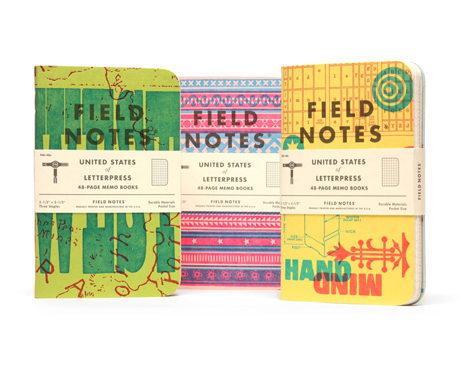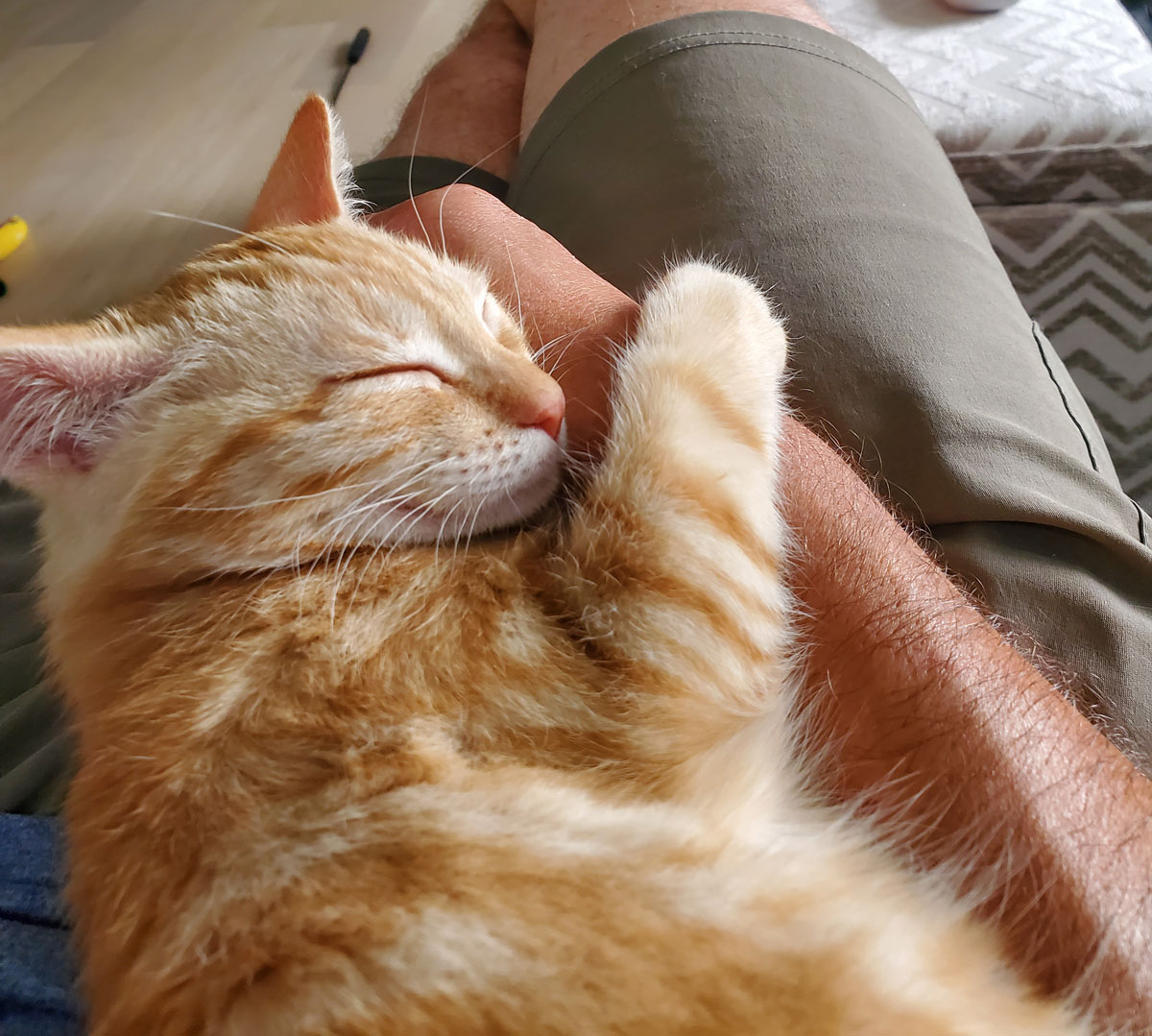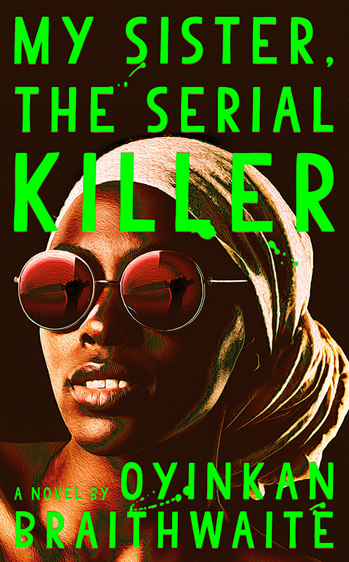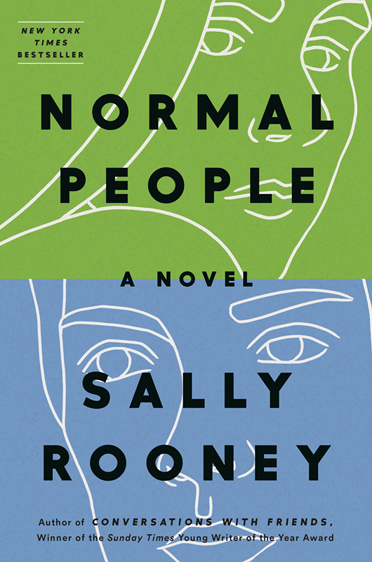-
Oct. 19, 2020
Opening Round
-
Oyinkan Braithwaite
My Sister, the Serial Killer
v.
Normal PeopleSally Rooney
-
Judged by
Sarah Hepola
The first 15 pages of My Sister, the Serial Killer were like crack. “I bet you didn’t know bleach masks the smell of blood,” the narrator tells us on the second page. OK, I was in. I tore through the short chapters, only a few pages apiece with titles like “Mascara” and “Rope” and “Blood,” and the book’s simple prose and relentless thrust gave me the exhilaration of being a fast and efficient reader, when I’m a slow and plodding one. The book tells the story of two women in Nigeria, one a lovelorn nurse and her sister, a killer beauty in more ways than one. Why had I never heard of this novel? Of its author Oyinkan Braithwaite? Only 30 pages in, I wanted to recommend the novel to all my true-crime friends. Stop listening to those trashy podcasts, and pick up this deliciously fun book.
I’d heard of the second book in the competition, Normal People. Its author Sally Rooney was a critical darling. People cooed over her 2017 debut Conversations With Friends, and this was her followup, so I already hated her. How old was this woman? Not even 30 yet? Slow your roll, young Rooney; it’s a marathon, not a sprint. I resolved to keep an open mind, but I admit I was grumpy as I cracked the spine.
Normal People follows two young sort-of-lovers in Ireland, the rich and clever Marianne and the not-rich but still clever Connell, the son of her family’s maid, as they orbit each other’s lives and beds through the years. The chapters were nice and brisk. Novels should do this more often. So rewarding! And it didn’t take long to see why readers swoon over Rooney. She has that spooky eye for detail, that way of sinking beneath the skin. “He could smell the inside of her house on her clothes.” Everything felt so real, so sad. “The place had that strange unfurnished cleanliness that lonely houses sometimes have.” Even the homes were unfulfilled and melancholy. I began to look forward to the moment at the end of the day when I could slip under my covers and meet Connell and Marianne wherever they were stumbling, to lose myself in their sweet dysfunction again.
My Sister, the Serial Killer was losing its grip on me by the midway point. The book still charmed me. It was more than a murder mystery; it was a darkly funny social commentary about a culture warped by male domination and female beauty. Ayoola, the serial killer of the title, is as vain as she is dangerous, and I chuckled at lines like, “She is incapable of practical underwear.” But Ayoola felt more like cartoon than character. Everyone did. I never believed this story so much as I was entertained by it. Arsenic and Old Lace for contemporary Nigeria, a fun tale told with panache.
Meanwhile, over in the land of Normal People, I was writing notes in the margins like “Ahhhh these people!!” and “no no no”—not because I disliked the book, but because I so thoroughly believed it, and I was gutted by the characters’ inability to be honest with each other and connect. “I think I was starting to have feelings for you there at one point,” Marianne confesses to Connell, who shares his own method of dealing with such inconvenient human frailty: “You just have to repress all that stuff.” They return to each other only to lose each other again, over and over. They were trapped by convention and class difference and the stupid human instinct to preserve one’s stupid ego, and I wanted to book them an hour with Esther Perel so we could solve this relationship once and for all. Marianne and Connell were maddening, and I loved them deeply, and I miss them still.
My Sister, the Serial Killer is a clever book, but it never hit me very deep, which I confess is the place I like a book to hit. I’m the type who wants to be a little messed up by what I’m reading, re-arranged and challenged, and Normal People was filled with these messy micro-movements of tenderness and longing that I’m still trying to understand. My Sister, the Serial Killer may have been the thriller, but Normal People was the one that haunted me.
Match Commentary
By Bill Hughes & Andrew Womack
Andrew Womack: Welcome, Bill! Could you introduce yourself to the audience a bit?
Bill Hughes: Hi Andrew. I’ve been following the ToB since 2010. On some parallel Earth, I found it sooner and my life is completely different now. Better, probably. I live just east of Seattle. I’m a computer programmer who lost his way somewhere along the journey and ended up in management. Parallel Earth Bill probably is still having fun as a programmer.
Andrew: I think a lot of people are wishing they were on a parallel Earth these days.
Bill: I’ve seen some of those Earths, and strangely enough, they all have reality TV stars as President of the USA. In one of them, Kim Kardasian has an excellent healthcare plan with bipartisan support, and she’s brought peace to the Middle East. In another, Jerry Springer’s presidency is a bit of a shit show, but at least he’s more self-aware and in on the joke, so it seems better somehow.
 Field Notes® Limited Edition for the Fall of 2020 is the “United States of Letterpress,” which features the work of nine independent letterpress shops from across America. This series demonstrates a wide array of craftsmanship, ingenuity, and love for the age-old and tactile process of letterpress printing. Check the the short documentary film too.
Field Notes® Limited Edition for the Fall of 2020 is the “United States of Letterpress,” which features the work of nine independent letterpress shops from across America. This series demonstrates a wide array of craftsmanship, ingenuity, and love for the age-old and tactile process of letterpress printing. Check the the short documentary film too.Andrew: Hahha. And can you tell us about your tastes in reading?
Bill: In general, I’m drawn to speculative fiction and satire. I like books that make me think and/or laugh. If I’m 30 pages into a book and the only thing going on is navel gazing, it usually gets the boot. But occasionally I come across a novel where the writing is so good that I can revel in the art of it even if nothing out of the ordinary is happening plot-wise. Those are a special treat.
Andrew: Any favorites that fit that mold?
Bill: I would say that, other than Normal People, Fever Dream is the most recent example of a book that carried me along solely because of its artistry. That book is an amazing feat of literary craftwork. I don’t even remember much about what little of the story I managed to understand, but I still vividly remember the way it hit me and drew me in to the reading experience. I read that in one sitting; couldn’t go to sleep till I had finished it. For a more recent example of a book that I think checks all the boxes, I’d highly recommend the short-story collection Exhalation by Ted Chiang.
Andrew: In her decision, Judge Hepola calls out the difference between books that are clever versus those that hit deep. As a reader, where do you think your preferences fit along that gamut?
Bill: I like that distinction she draws. Normally I’ll enjoy a book with a clever premise over one where we just have characters going about their life. In order for me to love a character-based novel or one where the defining feature is the quality of the prose, it has to be amazing. On the other hand, if an author has done a good job of building and immersing me in a new and fascinating world, I’ll overlook lesser quality writing because the world and plot is pulling me forward. Just like Judge Hepola, the premise revealed in the beginning of My Sister, the Serial Killer hooked me right away.
Do you agree with her take on that difference?
Andrew: I absolutely do. I’d say my favorite books tend to be those that satisfy on both counts: a clever premise and an emotional weight. For me, the most recent Rooster champion that did that was a book you just mentioned, our 2018 winner, Fever Dream.
Bill: I have to bring it up one more time: One of my favorite discoveries thanks to the Rooster, Lightning Rods, is a great example of masterful literary execution while being a compelling story with a clever premise. I kept reading because I wanted to see how Helen DeWitt was going to keep pulling off this outrageous satire, but also because I wanted to find out what happened next in the bonkers story.
Andrew: So, My Sister, the Serial Killer versus Normal People. Were you pulling for one or the other?
Bill: I read My Sister, the Serial Killer last year. I started reading Normal People prior to the 2020 ToB but didn’t finish it. I don’t remember how far I got the first time before I punted, but now that I’ve read it through, I clearly gave up too soon. If you had asked me a month ago, I would have said I was rooting for My Sister, the Serial Killer simply because the premise (two people living their lives, looking for love) of Normal People alone wouldn’t normally scream “must read” to me. But after reading it, it was Normal People for the win. It’s one of those rare birds I mentioned.
Andrew: Can you tell me why?
Bill: The more I read, the more real the characters felt to me. The way she described their inner thoughts and feelings, the way their flaws and neurosis seemed understandable and affected their behavior in natural ways. It wasn’t that the characters were particularly likable, but there were occasional aspects of their inner lives that I could relate to and I remember thinking how she had nailed the essence of what that feeling or thought “feels” like. I liked how concise the writing was—the way she spanned such a large amount of time so sparsely, but seemingly completely (complete, at least, to illustrate the key aspects of their evolving relationships). The story itself, what there was one, wasn’t particularly interesting to me, which would normally make this a DNF. But once I got into it, the quality of the characterization kept me going. As for My Sister, the Serial Killer, I loved the premise at first, but, like the judge, I was starting to be less engaged halfway through. Where the beginning and first half had some funny/interesting surprises, by the second half I felt like I knew where it was all heading and the story kind of coasted to a mostly predictable ending. I was never really invested in either of the characters, so once the premise and plot stopped being entertaining, there wasn’t much left to keep me hooked.
Andrew: So you concur with Judge Hepola?
Bill: Her Twitter profile pic features her orange kitty, showing she is a person of great taste and wisdom. As someone with an orange kitty myself, everything she says must be correct.

Andrew: Thank you, Bill, for joining us today! Now let’s hand it over to the Commentariat to let us know what they thought—and share pet photos, should they feel so inclined.
And everyone: Please come back tomorrow for the start of the quarterfinals, when Jess Zimmerman decides between Cloud Atlas and The Brief Wondrous Life of Oscar Wao. See you then!
New Super Rooster merch is now available at the TMN Store. As a reminder, Sustaining Members receive 50 percent off everything in our store. To find out why we’re asking for your support and how you can become a Sustaining Member, please visit our Membership page. Thank you.
Welcome to the Commentariat
Population: You
To keep our comments section as inclusive as possible for the book-loving public, please follow the guidelines below. We reserve the right to delete inappropriate or abusive comments, such as ad hominem attacks. We ban users who repeatedly post inappropriate comments.
- Criticize ideas, not people. Divisiveness can be a result of debates over things we truly care about; err on the side of being generous. Let’s talk and debate and gnash our book-chewing teeth with love and respect for the Rooster community, judges, authors, commentators, and commenters alike.
- If you’re uninterested in a line of discussion from an individual user, you can privately block them within Disqus to hide their comments (though they’ll still see your posts).
- While it’s not required, you can use the Disqus
tag to hide book details that may spoil the reading experience for others, e.g., “ Dumbledore dies .” - We all feel passionately about fiction, but “you’re an idiot if you loved/hated this book that I hated/loved” isn't an argument—it’s just rude. Take a breath.




